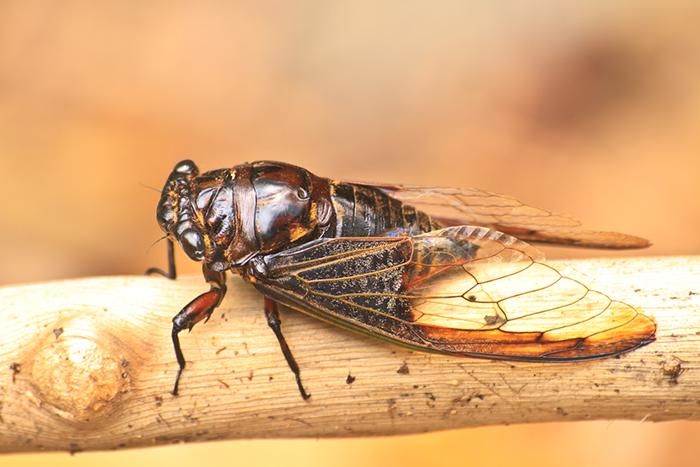After 17 years underground, billions of cicadas are emerging in the eastern United States this spring. Although cicadas are not pleasant looking, they are HARMLESS and TEMPORARY. They do not eat through crops, are not poisonous, do not bite, etc. To be very clear, Holistic Pest Solutions will NOT treat for cicadas and they should not be treated. They are only around for 4-6 weeks and will probably not affect Central Virginia this year. But since cicadas are all the buzz, we thought we’d take this opportunity to educate you about this very odd insect that everyone is talking about.
What Are Cicadas?
We know that they are noisy but what exactly are cicadas? According to CicadaMania.com, cicadas are the most amazing insects in the world. They belong to the same family as aphids and leafhoppers and there are more than 3,000 different species of cicadas. Each one falls into two categories: annual cicadas and periodical. Annual cicadas appear every year while periodical cicadas live most of their lives underground and emerge every one to two decades. The ones that are popular in conversation right now are the Brood X from the latter category.
Where and When Do They Emerge?
Cicadas generally emerge primarily on the eastern side of the United States from New York to Illinois, and as far down as Georgia. Cicadas typically start to emerge once the soil level reaches 64 degrees in mid to late April, but their prime time to emerge is in May.
Life Cycle
Cicadas begin as a rice-shaped egg, and are buried into tree limbs by the female cicadas. Once the eggs hatch, the cicadas feed on the tree’s fluids. At this stage they may look like a white termite or ant. Once ready, they leave the tree and go underground for 2-17 years depending on the species. After 2-17 years, the cicadas emerge to the surface as nymphs. The nymphs climb to a nearby tree and shed their exoskeleton, revealing new wings and adult skin. They spend the rest of their brief adult life looking for a mate. The males will make noises to attract the female, and after mating, the cycle happens all over again.
Will Cicadas Harm You or Your Garden?
The short answer is no. There is very little evidence that cicadas do any damage at all. They are not poisonous, and they do not bite or sting. Although you may see them on your plants, they are nothing to worry about and will quickly move on to trees where they will lay their eggs. Egg laying may damage the tips of trees (known as flagging); however, older, established trees can easily recover from flagging. Younger, less developed trees may have a harder time recovering, so you may want to delay planting.
When Will They Disappear?
After emerging, Cicadas will be around for 4-6 weeks, and by either late June to mid July, they should be gone. We will expect to see Brood X again in 2038. Again, Cicadas are a very temporary pest.
What to Do About Them
PLEASE do not use any pesticide or insecticide to kill cicadas. Since they have a very brief life above ground, chemicals are not worthwhile or effective against “migrating populations” as these insects move from property to property. Insecticides may harm beneficial pollinators on which flowers and trees depend. Furthermore, birds and other animals (including your pets!) who feed on the cicadas and other insects will ingest those poisons as well. Instead, you can remove them from your plants either by hand, if found in little numbers, or by a garden hose by spraying them. In addition, foil and barrier tape can be used to wrap around tree trunks and prevent cicadas from moving up the tree and laying eggs. Lastly, you can use netting to protect young and vulnerable plants from being damaged by the short term cicadas.
Bottom line, treating for cicadas is not necessary and should not be done. They are a very temporary pest and they are too big a part of the food chain to risk trying to poison them and, in turn, poisoning other animals. If they DO emerge in Central Virginia a couple of years from now, we should all just leave them alone.
You may also be interested in Ways To Be Eco-Friendly and Most Common Misconceptions About Pests
*Our Environmental Commitment: Holistic Pest Solutions is committed to the preservation of our environment. Our goal is to nurture the soils and plant life of lawns and landscapes. Utilizing holistic pest control practices that cause the least amount of impact on the environment.







